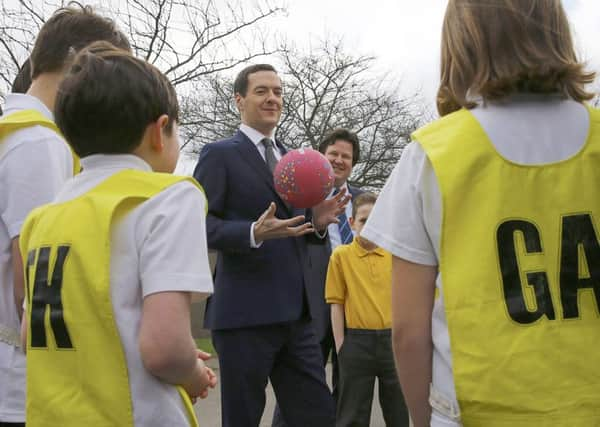Analysis: Osborne unlikely to scrap his triple lock


After all, in his post-election Budget last year he promised to “honour the commitments we made to uprate the state pension by the triple lock and protect the other pensioner benefits”.
And in the Autumn Statement, as he wielded the axe over public spending he promised that the Government’s fiscal plans would allow it to “maintain a triple lock on the value of the state pension, so never again do Britain’s pensioners receive a derisory increase of 75 pence”.
Advertisement
Hide AdAdvertisement
Hide AdThe substantive issue that has emerged from the resignation of Iain Duncan Smith and his weekend interviews is a longrunning tension between the Department for Work and Pensions and the Treasury over the latter’s demands for welfare savings and protection for pensioner benefits and whether both can be simultaneously achieved without harmful impacts on other groups.
Given what we now know, the failure to highlight the triple lock last Wednesday could be seen as Mr Osborne’s attempt to placate his Cabinet colleague.
But it is more likely that given the Budget already included cuts to disability benefits alongside tax cuts for higher earners the last thing Mr Osborne wanted to do was draw attention to a group that continues to enjoy protection from spending cuts.
And despite the criticism he now faces, the Chancellor is also likely to conclude that abandoning the triple lock on pensions would only make his situation worse.
Advertisement
Hide AdAdvertisement
Hide AdMr Osborne has, after all, already broken two of the three fiscal rules he set himself just last summer. Walking away from a key manifesto commitment less than a year after the General Election would leave his reputation in tatters.
The political rationale for protecting pensioners also remains intact.
Ipsos Mori research published after the last election showed a bigger share of those over-45 - the group either thinking about retirement or already retired - voted compared to younger groups and also voted decisively for the Conservatives.
Mr Osborne is a hard-headed political tactician and he will wager that the battering he is receiving now is a price worth paying if he can continue to protect the people who put the Conservatives in office.